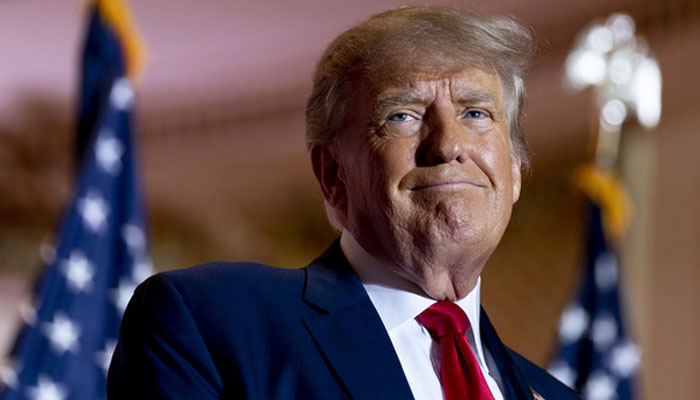Trump Rejects Third Term, Defends Tariffs and Immigration
Carney is scheduled to visit the White House for bilateral discussions this week.
Washington, D.C. – U.S. President Donald Trump has denied any intention to seek a third term in office, reaffirming his commitment to the constitutional two-term limit during a candid interview aired Sunday on NBC’s Meet the Press with Kristen Welker.
“I’ll be an eight-year president, I’ll be a two-term president. I always thought that was very important,” Trump said during the interview, recorded at his Florida residence. His statement comes amid speculation fueled by “Trump 2028” merchandise being sold by The Trump Organization, prompting questions about his future political ambitions.
Trump acknowledged calls from supporters urging him to run beyond 2028 but emphasized that such a move would contradict the U.S. Constitution’s 22nd Amendment, which prohibits any individual from being elected president more than twice. “I’m not looking to do it… To the best of my knowledge, you’re not allowed to do it,” he said, while noting that some supporters had floated potential legal loopholes—ideas he did not endorse.
The president also hinted at future Republican leadership, naming Vice President JD Vance and Secretary of State Marco Rubio as potential successors, signaling a planned transition of power following his second term.
Tariffs and Economic Downturn
Trump defended his economic strategy amid the country’s first economic contraction since 2022, attributing the slowdown to what he termed a “transition period” due to his administration’s aggressive tariff policies.
“If somebody thought [the tariffs] were going to come off the table, why would they build in the United States?” he argued. Downplaying concerns over consumer shortages, Trump said, “They don’t need to have 30 dolls. They can have three… They don’t need to have 250 pencils. They can have five.”
Due Process and Immigration Criticism
The interview also touched on immigration and constitutional rights. Welker questioned whether Trump’s deportation policies bypassed due process protections guaranteed under the Fifth Amendment. Trump responded by citing reliance on legal counsel: “I have brilliant lawyers that work for me, and they are going to obviously follow what the Supreme Court said.”
This followed a Supreme Court ruling requiring the government to help return a man mistakenly deported to El Salvador—a case that has intensified scrutiny of the administration’s immigration practices.
Military Action ‘Not on the Table’ for Canada
Addressing international concerns, Trump ruled out any possibility of military action against Canada in the wake of Mark Carney’s unexpected victory in the Canadian federal elections. “I don’t see it with Canada,” he said, but reiterated his longstanding demand that allies contribute more to their own defense.
Read more: Trump Posts Edited Image Depicting Himself as Pope
Carney is scheduled to visit the White House for bilateral discussions this week.
Emergency Powers and Border Security
Trump also stood by the ongoing national emergency declaration on immigration, first issued at the start of his presidency, despite a significant drop in illegal border crossings. “The big emergency right now is that we have thousands of people that we want to take out, and we have some judges that want everybody to go to court,” he said, framing the judicial process itself as a barrier to effective immigration enforcement.
The wide-ranging interview highlighted Trump’s continued defense of his policies while reaffirming his intent to operate within constitutional bounds as speculation over his political future continues.




Comments are closed, but trackbacks and pingbacks are open.